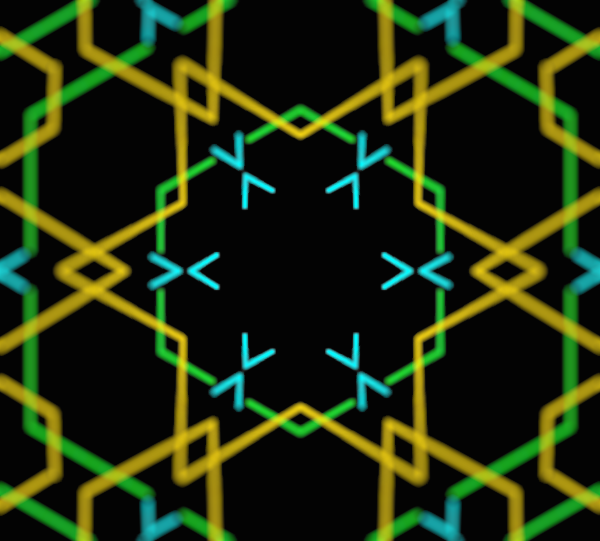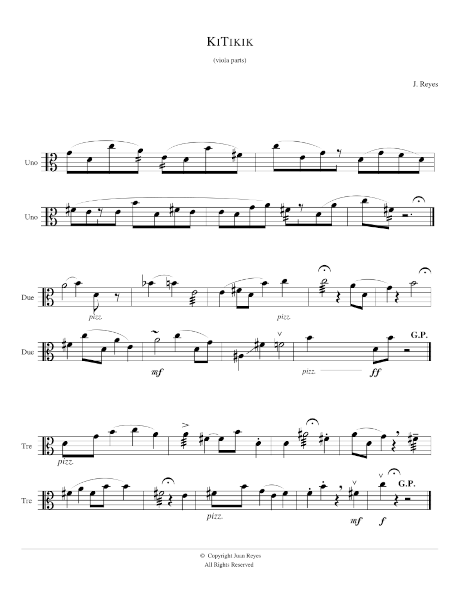tikiTik has evolved as a piece for itself. Aside from
being a composition for tele-performance it can also be be
performed as a media-only multi-phonic composition. Hereupon,
it is also conceived for a second-order Ambisonics
performance, if eight speakers are available on an octagon
configuration.
Instrumental parts conceived for this piece have also
evolved into another piece named KitiKit, which can
be performed or tele-performed with another sounds not
necessarily constrained to tikiTik.. A modular
quality meaning there can be one or more pieces
alike. Precisely, another tape part is being composed for
KitiKit. However, an avid performer might still
perform KitiKit with tikiTik. as an
option, or several combinations of both; maybe on the same
program.
Musical texture for tikiTik is achieved through contrasts
forged by threads of overlapping sonorities. Instead of pitch,
its development chains events thereby enforcing resonances of
changing spectra through time in addition to beatings, result of
combinations of sounds. Instrumentation is free to ensembles on
each performance, although 'staccato' playing is strongly
suggested on piano, clarinet, saxophone, trombone, flutes and
plucked stringed instruments. Even 'vox-humana' can also
be a choice. A multiphonic fixed part is made up of chunks of
spectra product of physical models of resonant bars plus signal
processing, legacy phase vocoding, and granular synthesis.

- Sketching of symmetrical paths -.
Point, line, circles and hexagons and cubic representations. Pattern recognition on legacy Silicon Graphics (SGI) Indigo.
✇ Listen 🗧
This is a standalone version without live performers
Through the use telepresence, interaction on this piece is meant
to be a live performance with players on the main stage as well
as on remote sites. Nevertheless some sound sources follow
trajectory paths on bi-dimensional planes on each
location. Software for this composition was developed by the
composer using Linux open source software on environments like
Common Lisp Music, STK-ChucK and SuperCollider.
